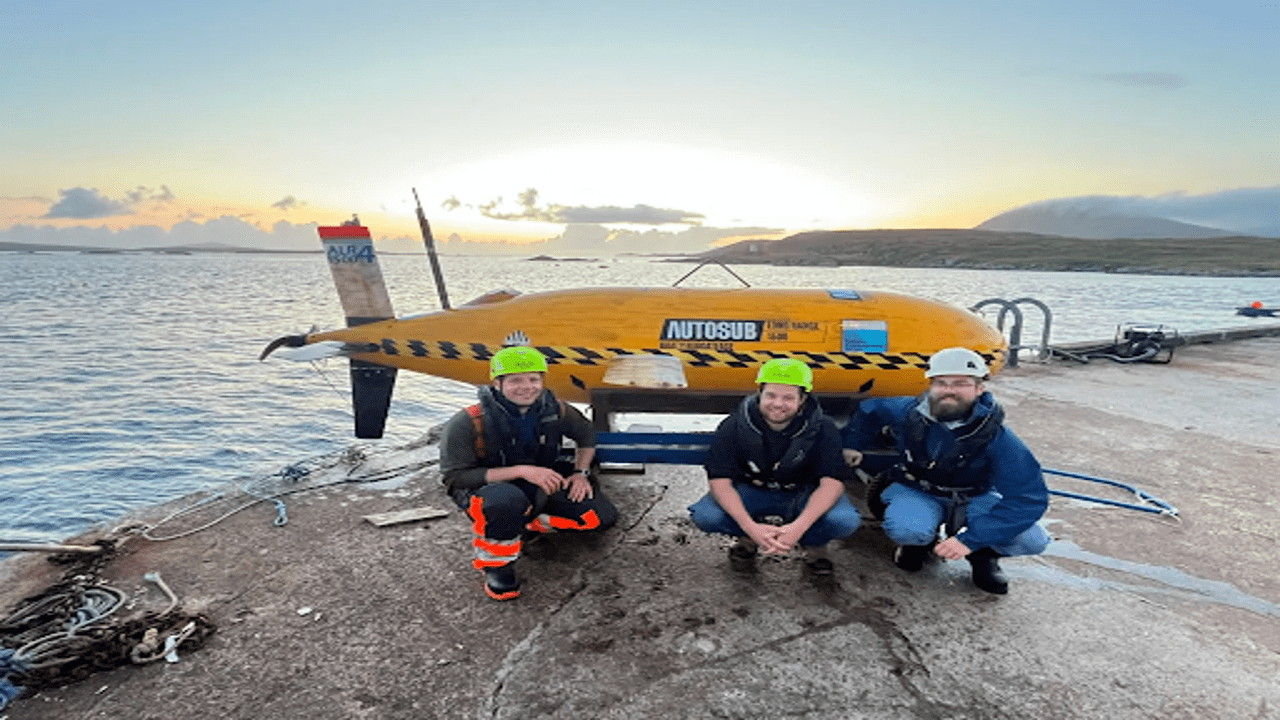
Boaty McBoatface returned to Scotland after 55 days at sea. BBC
Amid the choppy waves and fierce winds, engineers managed to pull the famous yellow submarine, Boaty McBoatface, ashore in Scotland this week. After spending 55 days navigating the open sea, the submarine, which had collected ocean data, was finally brought back to Leverburgh on the Isle of Harris. As Rob Templeton, one of the engineers working on the submarine, described, Boaty was a bit slimy and covered in ocean growths.
Boaty’s journey, which spanned over 2,000 kilometres from Iceland, was a significant scientific mission aimed at studying the deep ocean's "twilight zone." This region, shrouded in mystery, plays a crucial role in understanding climate change. Boaty’s mission involved exploring what scientists refer to as "marine snow"—tiny particles, including animal waste, that drift to the ocean floor and lock away large amounts of carbon.
The deep ocean acts as a vast carbon sink, and understanding how it functions is key to grasping climate change’s broader impacts. The ocean’s biological carbon pump, which includes tiny plants and animals, absorbs carbon dioxide from the atmosphere. These particles then sink to the ocean's depths, potentially reducing atmospheric carbon levels, which are a significant driver of climate change.
A group of engineers at the National Oceanography Centre operates a fleet of six robots. BBC
Boaty McBoatface, equipped with over 20 sensors, functioned like a floating laboratory during its journey. It measured various biological and chemical factors, such as nutrient levels, oxygen, and temperature, crucial for the BioCarbon project led by the National Oceanography Centre, the University of Southampton, and Heriot-Watt University in Edinburgh.
Dr. Stephanie Henson and Dr. Mark Moore, who were involved in the project, explained the importance of their work while at sea. Their research aimed to monitor the ocean’s upper layers, focusing on phytoplankton (tiny plants) and zooplankton (small animals), as well as the "fecal pellets" they produce. This data is crucial as it helps scientists understand how changes in the carbon pump could affect global carbon dioxide levels and, consequently, climate change.
Tiny particles, visible under a microscope in a water drop, transport carbon to the deep ocean. BBC
Preliminary findings suggest that the carbon pump might be weakening, indicated by smaller blooms of phytoplankton and zooplankton than expected. This trend could mean that less carbon is being sequestered in the deep ocean, potentially leading to higher atmospheric carbon dioxide levels.
Dr. Adrian Martin, overseeing the BioCarbon project, noted that understanding these dynamics is crucial, especially as discussions about geoengineering—methods to artificially enhance the ocean’s ability to absorb carbon—continue. Such interventions could have significant consequences, and understanding their impacts is essential before making any decisions.
In June, Stephanie Henson led a research expedition to Iceland as the chief scientist. BBC
With the first phase of their research concluded, Boaty McBoatface is heading back to Southampton. The scientists plan to return to Iceland in the fall to compare seasonal changes and continue their exploration of how our warming planet might affect oceanic carbon storage.















